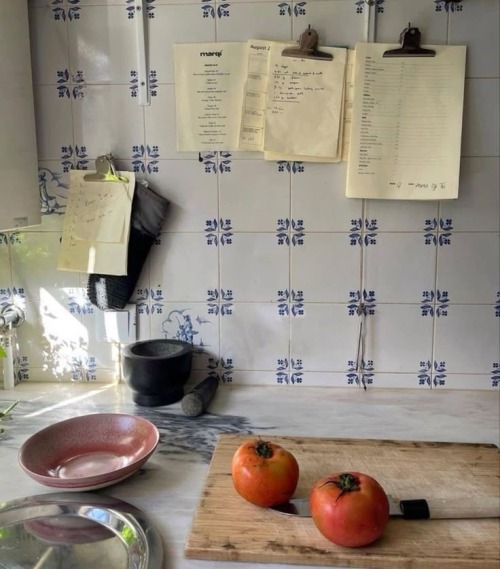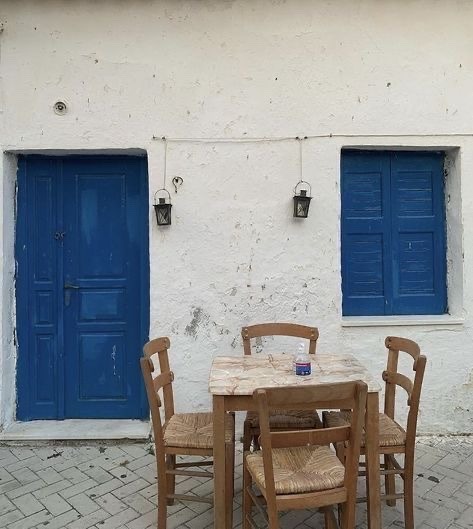The Birth Of Jesus
Luke 2 - retold version

The Birth of Jesus
At that time, the Roman Emperor Caesar Augustus issued a decree that everyone in the empire must be registered in a census. This meant that each person had to travel to their ancestral hometown.
Joseph, a descendant of King David, lived in Nazareth in Galilee. He went to Bethlehem, David’s hometown, with Mary, who was engaged to him and expecting a child.
While they were there, the time came for Mary to give birth. She gave birth to her firstborn son, wrapped him in strips of cloth, and laid him in a manger because there was no room for them in the inn.

The Shepherds and the Angels
That night, some shepherds were staying out in the fields nearby, watching over their flocks. Suddenly, an angel of the Lord appeared to them, and the glory of the Lord shone all around them. The shepherds were terrified, but the angel said, “Don’t be afraid! I bring you good news that will bring great joy to all people. Today, in Bethlehem, a Savior has been born. He is the Messiah, the Lord. You will find him wrapped in cloths and lying in a manger.”
Then, a vast host of angels appeared, praising God and saying, “Glory to God in the highest, and peace on earth to those with whom God is pleased.”
When the angels returned to heaven, the shepherds said, “Let’s go to Bethlehem and see this thing that has happened!” They hurried to the village and found Mary and Joseph, with the baby lying in the manger.
After seeing him, the shepherds told everyone what the angel had said about this child. All who heard their story were amazed. Mary treasured these things in her heart and thought about them often. The shepherds went back to their fields, praising God for everything they had seen and heard.

Jesus Presented at the Temple
Eight days later, the baby was circumcised and officially named Jesus, the name the angel had given him before he was conceived.
When the time came for Mary and Joseph to follow the purification laws, they brought Jesus to the temple in Jerusalem to dedicate him to the Lord, as the Law of Moses required. They offered a sacrifice of two doves or pigeons, which was the customary offering for those who couldn’t afford a lamb.
At the temple, there was a man named Simeon. He was righteous and devout, eagerly waiting for the Messiah to come and rescue Israel. The Holy Spirit had revealed to him that he wouldn’t die before seeing the Lord’s Messiah.
Moved by the Spirit, Simeon went to the temple. When Mary and Joseph brought Jesus to be dedicated, Simeon took the baby in his arms and praised God:
“Lord, now I can die in peace,
as You have promised.
I have seen Your salvation,
prepared for all people—
a light to reveal You to the nations,
and the glory of Your people Israel.”
Mary and Joseph were amazed at what Simeon said. Then Simeon blessed them and told Mary, “This child is destined to cause many in Israel to rise and fall. He will be a sign from God, but many will oppose him. And a sword will pierce your own soul, too.”
There was also a prophetess named Anna, an elderly widow who lived in the temple and worshiped God with fasting and prayer day and night. When she saw Jesus, she gave thanks to God and spoke about him to everyone waiting for the redemption of Jerusalem.

Jesus Returns to Nazareth
When Mary and Joseph had done everything required by God’s law, they returned to Nazareth in Galilee. Jesus grew up healthy and strong, filled with wisdom, and God’s favor was upon him.

The Boy Jesus in the Temple
Every year, Jesus’ parents traveled to Jerusalem for the Passover Festival. When Jesus was twelve years old, they went as usual. After the festival ended, they started their journey home, but Jesus stayed behind in Jerusalem without them realizing it.
Assuming he was with the group, they traveled for a day before they began looking for him among their relatives and friends. When they couldn’t find him, they returned to Jerusalem to search for him.
After three days, they found him in the temple, sitting among the teachers, listening to them, and asking questions. Everyone who heard him was amazed at his understanding and answers.
When Mary and Joseph saw him, they were astonished. Mary said, “Son, why have you done this to us? Your father and I have been frantic, searching for you everywhere!”
Jesus replied, “Why were you searching for me? Didn’t you know I must be in my Father’s house?” But they didn’t fully understand what he meant.
Jesus returned to Nazareth with them and was obedient to them. Mary treasured all these things in her heart.
Jesus grew in wisdom and stature, and in favor with God and people.

More Posts from Unsafeunsaid and Others
y/n things to script about yourself ₊˚⊹♡

────୨ৎ────
。𖦹°‧ new kid effect. people wanna get to know you & are curious about you everywhere you go. you can’t help but lure people in.
。𖦹°‧ you have one feature that’s unnatural about you. want full on alexandria's genesis ? why not. slight “elf-like” ears ? sure. vampire fangs ? so cute.
。𖦹°‧ animals approach you. piggybacking off of that, they don’t have diseases & (wild) animals are very clean !
。𖦹°‧ you always find the coolest things. for me this would be something like thrifting some cool old lamp. but this can obviously apply to anything. a long lost one of a kind designer piece that fits you perfectly, perhaps. a stolen watercolor painting worth millions.
。𖦹°‧ clothes always look good on you. no tailoring needed. every piece of fabric you drape over your body looks like it was custom made for you & your body type.
。𖦹°‧ you know the best places. a train ride up to a quiet town that has the best homemade ice cream. an abandoned mall covered in vines with stores still stocked & untouched.
。𖦹°‧ you’re a local celebrity. or just very well liked. people notice you when you go out. people secretly take pictures of your outfits when your not looking. shops give you things for free. restaurants give you desert on the house just because.
。𖦹°‧ people associate you with things. your favorite singer or animal or smell. little things that make people think of you.
。𖦹°‧ heightened senses. really good smell or hearing. like animal level. smelling full on tectonic shifts before they happen.
。𖦹°‧ synesthesia. you can see auras around people & taste colors & see music in your mind.
。𖦹°‧ your words are like spells. whatever you say happens. very much seven rings “i want it I got it” coded.
。𖦹°‧ prophetic & meaningful dreams. you can see events before they happen sometimes. people even drop in to pay you a visit some nights.
。𖦹°‧ all your things smell like your signature scent. clothes. hair. school supplies. bag. sheets. pillows. could even rub off on people you spend a lot of time with. no perfume dupe for how you smell. can never be replicated. it’s unique to you.
if i had found shiftblr first instead of shiftok, my life would be 1000000000000000000000%%% better and my traumatized ass from shiftok would be sooooooooo gratefull
I HATE U SHIFTOK
I was talking to somebody about how Agatha came about having Nicholas. His last name is Scratch, so maybe he did have a father who was initially involved in his life, but I'm pretty sure Agatha and Rio were in an established relationship by the time he came into their lives. Maybe they had a deal with a gay male couple and used a "donation" in exchange of the name being passed down. Maybe Agatha straight up stole a baby idk.
But I like the thought of Rio coming home one day, carrying an infant in her arms, a flabbergasted look on her face. Agatha asks (only somewhat jokingly) if she brought home dinner. She peers down at this fresh-out-the-oven infant in her wife's arms. The kid is kinda cute.
Rio tells her that there was a teenage girl, a witch, who'd gotten pregnant. She told nobody about it, ashamed of herself, and then went out in the middle of the woods to give birth, where nobody could see her, hoping to put it all behind her, including the baby.
Agatha's heart aches at that, looking down at the abandoned newborn. She asks if she belonged to a coven, but Rio shrugs and says, "not anymore. She's dead. Died from hard labor. The fact that this little one survived is a miracle." She looks down at the baby and he lets out a little noise, content in her arms.
"Did you reap her?" Agatha asks, still looking at this child. His eyes are half-lidded, but she can see some murky blue. He's a handsome little guy.
Rio nods. "She was pretty talkative, too," she says. "Begging forgiveness for her sins, for me to take her son, for me to bring him somewhere safe."
"And you brought him here?" Agatha snorts, as if it's ridiculous.
"I couldn't imagine a safer place," Rio responds, honestly. "I mean, I could just have left him out there to die in the woods, but I hate ferrying young souls; they have no good stories to tell."
Agatha snorts at that. "Well how are we going to keep him alive?" She asks, taking him gently from Rio's arms and cradling him against her chest. "What do babies even eat?"
"Milk," Rio says, eyeing Agatha's chest.
"These are empty," Agatha says, turning away. "And they shall stay that way. Go get him some goat's milk or something. And STOP looking at me like that."
Rio's gaze is hungry, her tongue slipping out to wet her lips.
"Cariña," Agatha says, using the pet name sure to get Rio's attention. It is, after all, one of, like, twenty spanish words she's been taught. The others are not appropriate in this situation. "Go get the baby something to eat, lest you WILL be ferrying him into the next life before long."
Rio rolls her eyes and disappears with a snap. She comes back a few moments later with a bottle full of milk. Agatha is impressed.
"That was quick."
"Our neighbors have a newborn who won't breastfeed. We should have a steady supply for a while."
"Mamí is a thief, isn't she, Nicky?"
Rio's face flushes. "Mamí?" She asks. "Nicky?"
Agatha flushes next. "Oh, right. Sorry. I should have asked. We never spoke of..." She looks down at the baby, who is suckling greedily at the bottle of milk. "We never discussed children, but I...well, as long as we have him." She shrugs, flushing more as Rio studies her. Then a smile spreads over Rio's face.
"Okay," she says, "I'm Mamí. Are you...Mama?"
Agatha shrugs. "We'll see how I do. I didn't exactly have the best role model when it came to mothering."
"You will be ten times the mother Evanora ever was," Rio huffs, spitting on her mother-in-law's name.
"Ten times zero is still zero," Agatha retorts.
"Math?!?" Rio gasps, exaggeratedly, "Methinks you a witch, madam!"
Agatha cackles as she brings their son to the couch, sitting carefully so as not to jostle his meal and cause him to choke.
"My wife is even witchier than I," she says, smiling up at Rio as she follows. Rio sits next to her and puts her arm around Agatha's shoulders and looks down at the baby in her arms.
"Why Nicky?" Rio asks after a long moment of just staring at this little being.
"After my father, Nicholas," Agatha explains. "If he even existed at all."
Rio furrows her brow at that and Agatha shrugs. "Mother said he died before I was born. She said it was because he was weak. I think he just couldn't stand living with her, anymore. She refused to give me his last name, too, so I became another Harkness. How fortunate for me."
"Very," Rio snorts. "You never spoke of your father."
"You never asked, Agatha points out, then sighs. "As far as I know, he never even existed. Mother didn't speak of him until I was nearly grown. Always about how my father would be so ashamed of me, how he would have killed me eons ago, about how I was weak, just like him." She gave Rio a sad smile. "At that point, I knew I couldn't trust her word, so I imagined my father as a sweet, romantic man. One who courted my mother with flowers and handmade jewelry. He was strong, physically, bringing her wood for the fire and good cuts of meat to keep her nourished. Why he loved my crone of a mother, I'll never understand, but I hope that he loved me. Even though we never met."
"I could find out for you," Rio offered. "Shouldn't take long."
Agatha smiled lovingly at her and leaned in to kiss her lips, sweetly, before pulling back.
"Some things," she says, "are just better left to the imagination. You know?"
Rio nods. "Okay," she says, quietly, clearing her throat. "So how about his last name then? Harkness or Vidal? Both? Vidarkness?" She waggles her eyebrows. "Sounds very...witchy."
Agatha laughs, a deep gutteral sound, but not meanly. She reaches for Rio's hand and brings it to her lips, kissing her fingers.
"Scratch," she says, "like my father. Nicholas Scratch."
"Good, strong name," Rio agrees, leaning forward to press her forehead against Agatha's. "Nicholas Scratch. Nicky." She turns her gaze to their son, who has let go of the bottle and is dozing in Agatha's arms now. "Welcome." She runs a finger down his downy cheek.
Is it okay if you do Marvel DR visuals? this is also oddly specific, but if you have the time, maybe like just having escaped the red room + new in the avengers, thank you!! I love ur posts<3
Avengers Visuals
I hope this is somewhat accurate cause tbh I never watched Avengers🧍♀️💀











Bad habits








𝔱𝔞𝔰𝔱𝔢 𝔱𝔥𝔢 𝔰𝔞𝔩𝔱 𝔦𝔫 𝔱𝔥𝔢 𝔞𝔦𝔯
things about melissa i think about a lot
her morning voice
the way her hand fits in mine
how she yells/sings songs in the car
the adorable look of pride on her face when she presents me the food she has made
"mel, you didn't have to." "well it makes you smile. so yes. i had to."
just her sleeping. that in general. how she holds onto me as she's in a deep sleep and how she snores, sometimes she mumbles things
she loves hugging me from behind. her embraces feel like home.
looking at her with such love when she infodumps about her interests, just seeing how excited and happy she gets 🥹
The Look ™️ whenever she sees me upset:

okay sitting in the teacher's lounge during lunch she's reading or on her phone or something just not paying attention and guys she's so pretty when she does literally anything.

"do you need help with that? augh stop. lemme help you, hon."
*remembers one of my favourite things and brings it up casually in conversation*
watching movies while she reads or knits/crotchets next to me and she'll occasionally do an impression of whoever just spoke 😭 (IF I'M WATCHING ONE OF THOSE COWBOY MOVIES FORGET ABOUT IT. SHE'S DOIN THAT SHIT THE WHOLE TIME)
sending me random emojis because "look how cute these lil guys are"
takes my music recommendations very seriously
when we went on our road trip with our cat and it was some of the best times of my life
"melissa where do you get all those pairs of glasses from? they're really expensive." "i got a guy." "of course you do."
comfiest person to ever exist me thinks
@meowmeowhissss
It's purring her name in morse code
Earth child


Earth children are the guardians of the planet, embodying its strength, resilience, and life-giving nature. They can shape the land, make plants grow, and restore balance to the environment. With earthy features, glowing skin, and a calming presence, they bring stability and harmony wherever they go. Their bond with nature is unbreakable, and they draw wisdom and strength from the Earth itself.

Abilities
Earth healing - The power to heal damaged ecosystems, purify soil, and restore balance to the environment.
Mineral affinity - A connection to gemstones and metals, allowing them to summon or shape these materials.
Environmental awareness - A deep, almost supernatural sense of the Earth's condition, such as detecting danger or finding resources.
Elemental shielding - Creating barriers of stone, roots, or soil to protect themselves or others.
Animal bond - A natural connection to animals, allowing them to communicate or calm even the wildest creatures.
Seismic control - The ability to cause tremors or minor earthquakes by channeling the Earth's energy.
Earth healing - The power to heal damaged ecosystems, purify soil, and restore balance to the environment.
Enchanted endurance, stability and strength
Earth manipulation
Gravity manipulation
Plant manipulation

Characteristics
Eyes often reflect natural hues, like green, brown, or amber, with a grounding, calming effect.
Natural scent - soil, rain, or forests
Hair is usually brown or red,
Grounded presence - Their presence feels stabilizing, as if they bring balance and calm wherever they go.
Earth symbols - Patterns resembling tree roots, leaves, or cracks in stone might appear as markings on their skin.
Textured skin - their skin may take on the texture of bark, stone, or soil, especially when using their powers.
Sturdy build
Living accessories - Flowers, moss, or small plants might grow naturally on their clothes or hair
Eyes of wisdom - their eyes are usually green, blue or dark brown
Gets sick easily
Full form:




Names | Planet children | Masterlist
consuming desire : cannibalism as a metaphor for love.
love, at its core, is an act of surrender. to love is to give a part of yourself—your time, your attention, your vulnerability—and hope that the other person handles it with care. but what happens when this surrender becomes devouring? when love transcends the boundaries of self and morphs into something ravenous, something primal? enter cannibalism—perhaps the most shocking and visceral metaphor for love, yet one that is repeatedly used in literature, film, and art to depict the uncontainable hunger of human connection.
cannibalism as a metaphor for love walks a tightrope between horror and intimacy, and that’s precisely why it fascinates. it forces us to confront the extremes of desire: the yearning to possess, consume, and merge completely with another. in exploring this concept, we uncover the tangled relationship between appetite, intimacy, and annihilation.

“i want you inside me” : the physicality of love.
the language of love has always been laced with consumption. lovers speak of “devouring” each other’s presence, “tasting” sweetness in kisses, or “losing themselves” in one another. these phrases evoke a sensual hunger, but taken literally, they edge into cannibalistic imagery.
consider the act of kissing. in its essence, it’s a symbolic act of consumption: lips press together, breaths mingle, and a fragment of one’s essence is exchanged with the other. it’s a socially acceptable devouring—a soft echo of what would be unspeakable. yet the darker, more primal undercurrent of such exchanges is what fuels the metaphorical link between love and cannibalism.
cannibalism literalises what love often implies: a desire to fully possess, to ingest and internalise another person so they can never leave you. the boundary between two individuals collapses, and the act becomes a grotesque communion.

eros and thanatos : love and death as twinned forces.
freud famously posited that humans are driven by two primal forces: eros, the life instinct, and thanatos, the death drive. cannibalistic love is where these forces collide. the act of consuming someone you love is both an act of ultimate intimacy and ultimate destruction—a union so complete that it obliterates individuality.
in films like raw (2016) or bones and all (2022), cannibalism is portrayed as a macabre form of bonding. In raw, the protagonist’s discovery of her cannibalistic urges mirrors her sexual awakening, conflating desire with destruction. bones and all, on the other hand, frames cannibalism as a shared affliction—a metaphor for loving someone despite their darkest impulses. the lovers’ hunger for each other is both literal and figurative: they crave connection but fear the annihilation it brings.
this duality taps into our most primal fears about love. to love someone deeply is to risk destruction: of your heart, your boundaries, your sense of self. cannibalism renders this fear tangible, transforming the abstract pain of heartbreak into something visceral and bloody.

the religious undertones : communion and sacrifice.
the metaphor of cannibalism in love often carries religious overtones, particularly the idea of communion. in christian theology, the eucharist involves consuming the body and blood of christ as an act of devotion and unity. cannibalistic love mirrors this act of spiritual consumption but reframes it in a secular, often horrifying context.
this idea is vividly explored in han kang’s novel the vegetarian. the protagonist’s refusal to eat meat—and later her refusal to eat at all—becomes a metaphor for her rejection of societal expectations and the demands of love. her husband’s attempts to control her body echo the act of consumption: he seeks to possess her entirely, to mould her into a form that serves his desires. in rejecting this, she transforms herself into an unattainable ideal, one that can only be metaphorically consumed through memory and longing.
cannibalism also taps into the idea of sacrifice. in myths like the greek story of pelops, or the biblical tale of isaac and abraham, the act of consuming (or nearly consuming) another is framed as a profound, albeit horrifying, demonstration of love and devotion. these stories remind us that love often demands sacrifice—and sometimes, the sacrifice of the self.

love as hunger : the biological imperative.
on a biological level, love and hunger share striking similarities. both trigger the release of dopamine, the brain’s pleasure chemical, creating a sense of euphoria that can border on addiction. in this sense, the metaphor of cannibalistic love isn’t so far-fetched: to love someone deeply is to hunger for them, to crave their presence as intensely as one craves sustenance.
yet hunger, by its nature, is insatiable. the more you consume, the more you want. this insatiability is what makes love—and by extension, cannibalism—such a compelling metaphor. it captures the endless loop of desire: the more we try to possess another person, the more we realise how elusive true possession is.

modern obsessions : why cannibalistic love resonates today.
in a world increasingly defined by alienation and disconnection, the metaphor of cannibalistic love speaks to our longing for intimacy. we live in an era of 'ghosting', casual relationships, superficial connections, and carefully curated personas. to love someone—truly, deeply—feels radical, even dangerous. cannibalism amplifies this danger, turning love into an act of rebellion against a culture that fears vulnerability.
the rise of cannibalistic love stories in popular media also reflects our collective anxiety about boundaries. as technology blurs the line between public and private, self and other, the idea of being “consumed”—whether by love, fame, or social media—feels increasingly relevant. cannibalism forces us to confront these anxieties head-on, offering a grotesque yet strangely beautiful vision of what it means to truly connect.

the ultimate act of intimacy.
cannibalism as a metaphor for love is shocking because it reveals truths we’d rather avoid. it strips away the niceties of romance and exposes the raw, animalistic core of desire. it forces us to ask uncomfortable questions: how far would we go to possess the ones we love? what would we sacrifice to keep them close? and when does love stop being an act of connection and become an act of destruction?
in the end, cannibalistic love reminds us that intimacy is not without risk. to love is to hunger, to consume, and, sometimes, to destroy. it is a terrifying, beautiful, and profoundly human act—one that mirrors our darkest impulses and our deepest longing for connection.
perhaps that’s why we’re drawn to this metaphor, again and again. because in love, as in cannibalism, we find the ultimate paradox: the desire to be one with another, even if it means losing ourselves, and by an extension, our humility in the process.
-
 unsafeunsaid liked this · 6 months ago
unsafeunsaid liked this · 6 months ago -
 unsafeunsaid reblogged this · 6 months ago
unsafeunsaid reblogged this · 6 months ago -
 marvelshifter111 reblogged this · 6 months ago
marvelshifter111 reblogged this · 6 months ago
